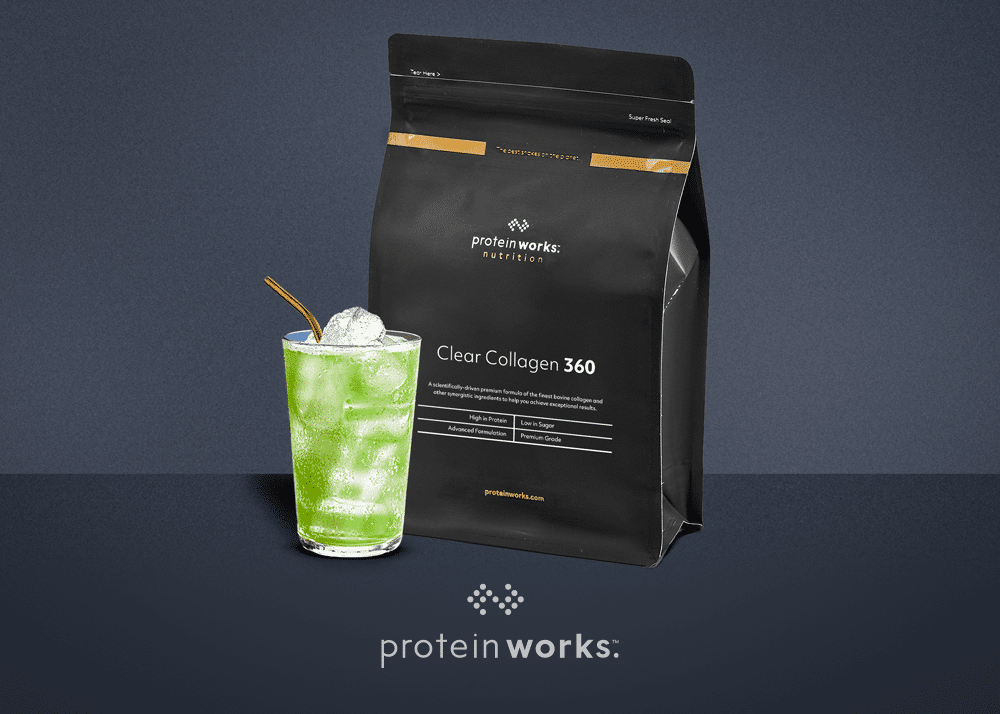
L-Lysine for Collagen Production
One of the most abundant proteins in the body, collagen is a huge part of healthy skin, joint health, and overall wellbeing. However, your body stores naturally decline with age, bringing with it stiff joints, and weaker bones. Luckily, there are certain amino acids you can supplement to boost your body’s collagen production, and one of them is gaining more and more publicity in the wellness sphere: L-Lysine.
Not sure what this is? No problem. We’re here to fill you on all things L-Lysine when it comes to boosting your collagen production.
What is L-Lysine?
Also referred to as just Lysine, L-Lysine plays a key role in your body’s collagen production. As a building block for proteins, it’s vital for muscle turnover, growth, and tissue repair, helping to keep your body healthy as you age. The catch? Your body can’t produce it on its own, so you have to get it from either your diet or supplements.
Some natural sources of L-Lysine include beef, chicken, fish, eggs, and dairy. If you’re plant-based, there are also plenty of options to get this essential amino acid into your system, including beans, lentils, quinoa, and soy products like tofu and tempeh.
The link between L-Lysine and collagen production
So how does this amino acid actually help boost your collagen supplies? Well, L-Lysine is required for your body to be able to make hydroxylysine, which is a vital compound making up collagen. L-Lysine also contributes to the structural integrity of connective tissues in the body, by helping to form the links between collagen fibres. Basically, it’s a vital building block to help your body create the proteins it needs to stay fit and healthy.
The benefits of L-Lysine for your body
Claiming that an amino acid like L-Lysine boosts your collagen production is all well and good, but what does this actually mean for your body? Here’s how it could support your physical wellness:
Keep your skin healthy
Collagen is one of the stars of the skincare realm, heightening hydration and encouraging wound healing.
Protect your joints
The cartilage between your joints thins out as you age, which can cause pain and inflammation in the long run. Collagen helps to maintain and regenerate these cartilage cells, reducing your chances of developing joint issues like osteoarthritis.
Improve your bone density
L-Lysine also supports the body’s ability to absorb calcium, which works hand in hand with collagen to keep your bones dense and healthy, preventing issues like osteoporosis. Collagen also contributes to stronger bone structure, reducing the risk of fracture.
L-Lysine or collagen: which to take
If you’re looking for the benefits of a collagen boost, you have a couple of options. While you could simply take dietary collagen , adding in L-Lysine may work better for you, as the two don’t work in entirely the same ways. Here’s a quick breakdown of the difference:
L-Lysine for natural production
L-Lysine supplements help your body produce collagen naturally by providing the amino acids necessary to create it. Because of this, L-Lysine is a great supplement to take if you’re wanting long-term or preventative support for your skin, joints and bones.
Collagen for a fast boost
Collagen supplements cut to the chase, providing pre-digested peptides that can be directly absorbed by the body and used straight away.
Combine them for the best results
If you’re after both the long- and short-term benefits, you can actually take L-Lysine alongside collagen. This will stimulate natural production, while also directly replenishing your body’s collagen sources. It’s the best of both worlds.
How to take L-Lysine for collagen production
Most people can safely take up to 3,000mg of L-Lysine per day, but it’s recommended to take between 2,000 and 3,000mg to support collagen production. For reference, around 100g of chicken contains ~2,500mg of L-Lysine, so it’s not a difficult target to reach. The source of your L-Lysine can be through your diet, or through supplement options like capsules or powders – whichever works best for you!
There are also some other nutrients that could give your body a little extra boost alongside the L-Lysine. Vitamin C helps the body absorb it, and is also a part of the collagen production process, so it’s a good complementary supplement if you want to maximise your results. Zinc is also a good supplement to add in, as it needs L-Lysine to be absorbed by the body, giving you better results.
Is L-Lysine safe to take?
In short, yes. Most people have no problems taking L-Lysine – even on an empty stomach. However, there are some precautions to bear in mind if you’re introducing it into your diet, as with anything new:
If taken in high doses (more than the recommended 3,000mg a day), L-Lysine could cause digestive issues, such as nausea, stomach pain or diarrhoea. There’s also a chance you could be allergic to it, so stop taking it immediately if you notice anything unusual like rashes or swelling. Excessive use of L-Lysine can also exacerbate existing kidney problems, so if you have any pre-existing issues here, consult your GP before adding this supplement into your rotation.
If you’re otherwise healthy and stick to the recommended dosage, you shouldn’t have any problems. So, if you want to help your body produce collagen naturally – and reap all the rewards that come with it – L-Lysine could be a great thing to add into your diet.
References
What are the health benefits of Lysine? | Medical News Today
4 impressive health benefits of Lysine | Healthline
Lysine: uses, side effects, and more | WebMD




